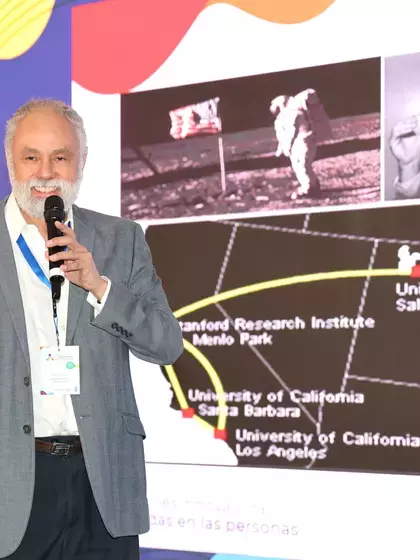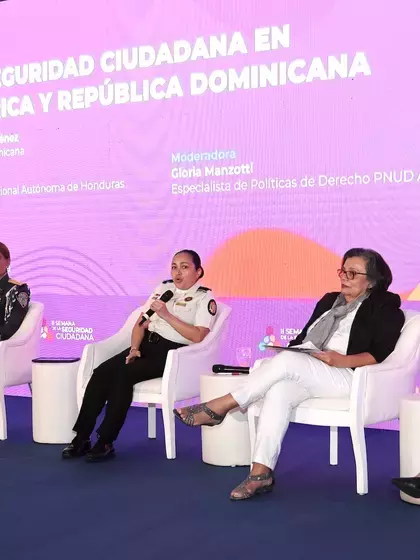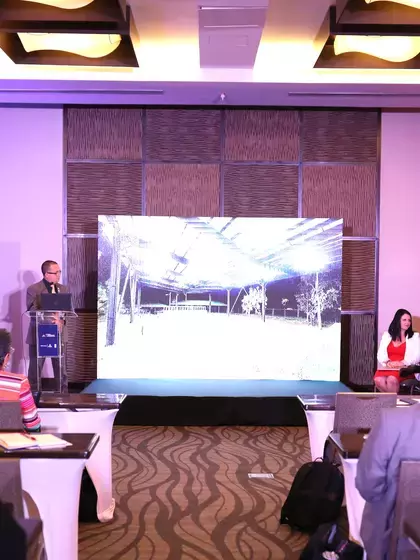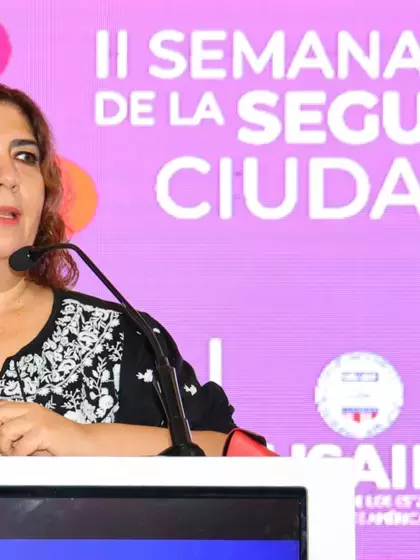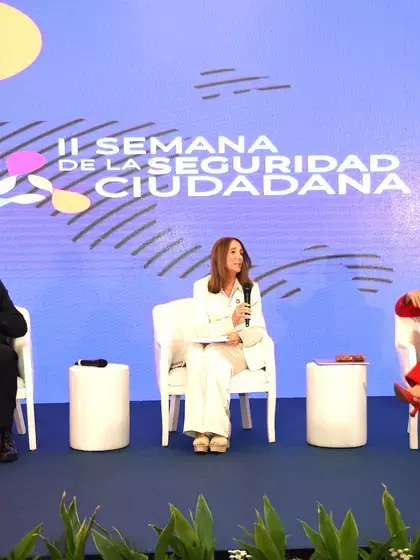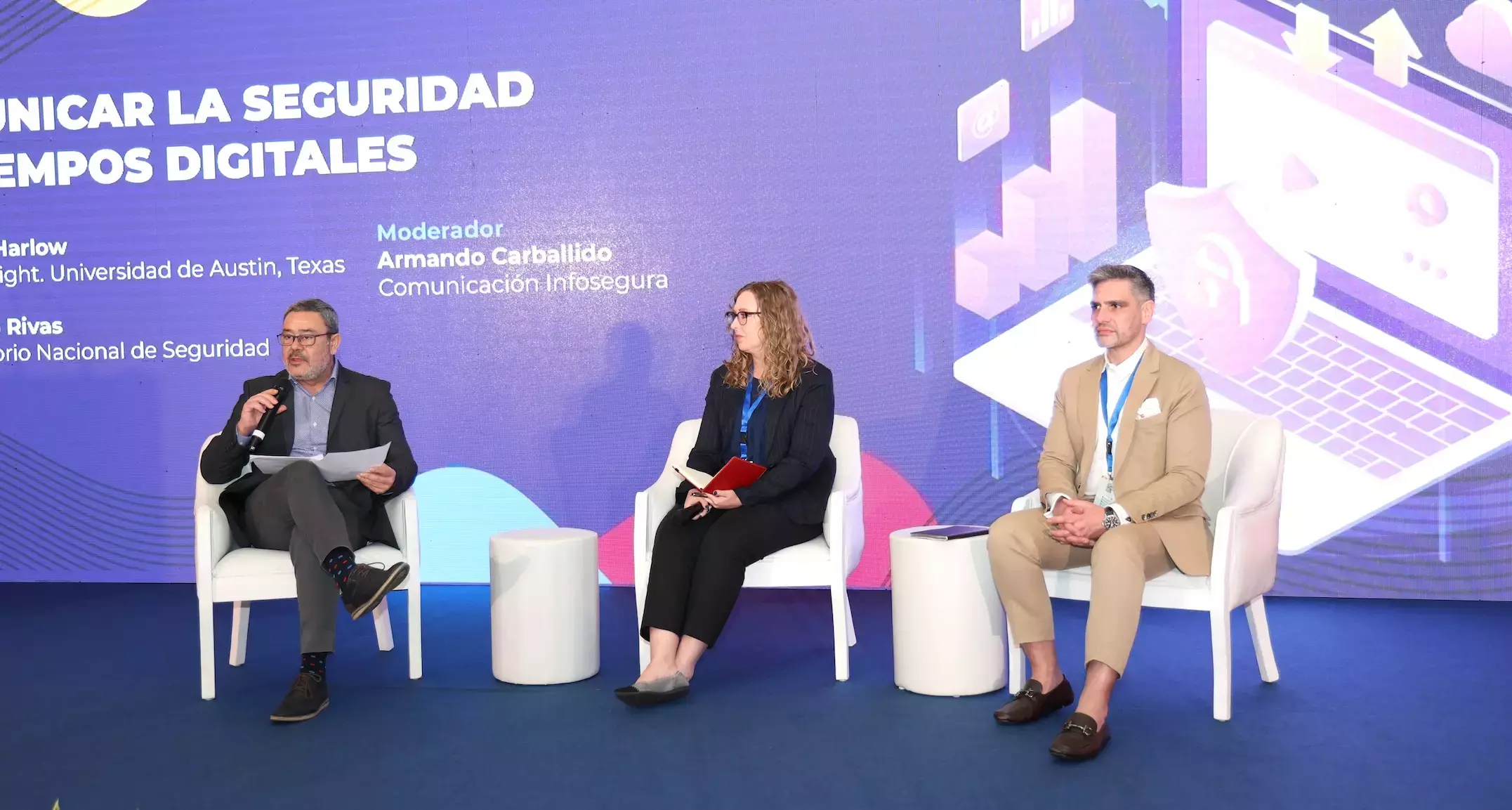
Journalism covering security in changing times
Covering information regarding citizen security was the central theme during the final session of InfoSegura’s Second Security Week. The discussion featured interventions by Summer Harlow, Associate Director at the Knight Centre for Journalism in the Americas at the University of Texas at Austin de la University of Texas at Austin, and Francisco Rivas, Director at the National Citizen Observatory de Citizen Security, Justice y Legality. The moderator was InfoSegura Communications Specialist Armando Carballido.
The main focus of this session was the significance of effectively communicating about citizen security in the digital age. An engaging discussion ensued, with participants providing remarks and questions.
The first question went right to the point: Is communication being handled properly in our countries?
The panellists agreed that it is not. Summer Harlow considered that, “it is not that journalists are not trying to cover what they need to, but, in some cases, governments or criminal organizations have an influence on the way news is covered.” “According to some studies,” she added, “journalists are limited when covering news in a way that is useful for citizens, especially in matters of security.”
When assessing the effectiveness of our communication regarding security, Francisco Rojas believes that the central question is the intended audience. “Communicating with what is known as the ‘red circle’—that is, decision-makers and persons with social influence—is not the same as communicating with society in general or a particular social group,” he said. “Myopically assuming that traditional media are the most common way of getting information is a mistake,” he added.
In this sense, Ms Harlow pointed to several cases of digital native media that emerged in Mexico because of the violence. Journalists in traditional media were unable to cover issues that were considered important for citizens. Ms Harlow explained that digital native media was able to address different topics, offer diverse narratives and include voices that had normally been excluded in the large commercial media due to the prevalence of violence and the inability to cover it. The communications scholar asserted that there were similar situations in other countries like Honduras and El Salvador, “where gender-based violence, for instance, has provided opportunities for new media to be created, with a different way of addressing topics like justice, human rights and citizen security.”
Finally, Mr Rojas highlighted that it is essential to be able to differentiate between the types of information that are being communicated through various media. Young people, for instance, seek out information on different platforms, including social media, particularly Instagram, Facebook and Twitter. One of the fundamental problems in journalism today is, “defining who we want to communicate with. what we want to communicate and what do we need to do so,”
He also added that in Mexico the quality of official data is questionable. “The National Citizen Observatory,” he explained, “drafts its own reports with figures and numbers from transparency requests, Unfortunately, the quality of information is compromised due to data manipulation and incomplete information.” In conclusion, effective communication in Mexico requires the ability to manage a diverse group of stakeholders and navigate the challenges that impact the quality and delivery of information.
The speakers also discussed the ethical challenges that journalists face, as well as the threat of fake news. Both coincided that, when dealing with sensitive citizen security issues, it is very important to communicate in simple terms to avoid revictimizing those affected. As for fake news, they warned of the danger it poses during election campaigns. Journalists are also at risk of personal attacks, which is another serious danger.
The role of academia and training journalists was also discussed. Summer Harlow underscored the need for providing resources and time for journalists to advance their careers. An example is the course on "Data Journalism for Citizen Security", offered by InfoSegura in partnership with the Knight Centre for Journalism in the Americas at the University of Texas at Austin, totally free of charge, which attracted over 2,000 journalists and communicators in the region.
The discussion concluded with a series of thought-provoking questions from the audience that sparked a lively debate on the topic of citizen security communication.

